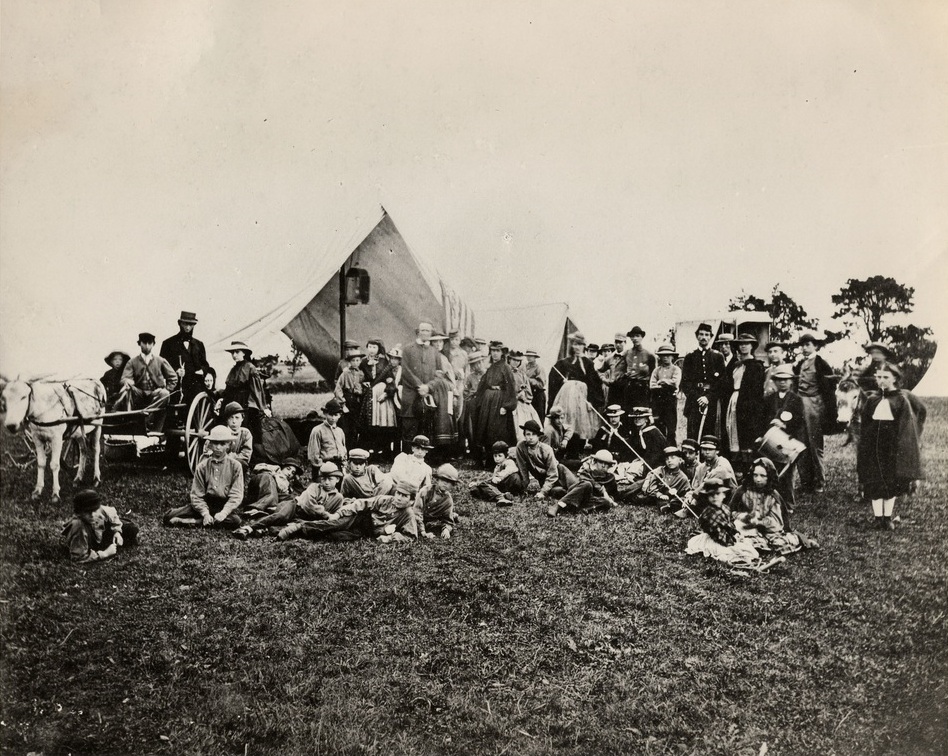A Brief History of Overnight Summer Camps in the United States
Summer camps have become an iconic and cherished tradition for many children and families in the United States. They offer youngsters a unique opportunity to escape the confines of daily life, explore the great outdoors, and develop essential life skills. However, the history of overnight summer camps is a fascinating journey that has evolved over the past century. In this blog post, we’ll delve into the historical roots of summer camps, their growth and transformation, and the lasting impact they’ve had on generations of American youth.
Early Roots and Inspiration
The concept of summer camps in the United States can be traced back to the early 19th century. While the idea of children spending time outdoors was not new, the model for organized summer camping took inspiration from the educational and scouting movements of Europe. The first American summer camp, Camp Chocorua, was founded in New Hampshire in 1881, taking inspiration from the principles of German educator Friedrich Fröbel.
The Influence of the YMCA and Boy Scouts
During the late 19th and early 20th centuries, organizations like the Young Men’s Christian Association (YMCA) and the Boy Scouts of America played significant roles in popularizing and structuring summer camps. These organizations offered opportunities for character development, physical fitness, and fostering a sense of community, values that still underpin many modern camps today.
The Camp Fire Girls and the Girls Scouts
While the YMCA and Boy Scouts catered primarily to young boys, the early 20th century saw the emergence of girls’ camps with the establishment of the Camp Fire Girls (now Camp Fire) in 1910 and the Girl Scouts in 1912. These organizations provided girls with similar opportunities for outdoor experiences and personal growth.
Camps During World War II
World War II marked a significant period in the history of American summer camps. As men were drafted into the armed forces, many camp staff members were called to serve, causing numerous camps to suspend their operations. However, some camps adapted by offering specialized programs for the children of service members and defense industry workers. These wartime efforts demonstrated the resilience and adaptability of the summer camp model.
Post-War Boom and Cultural Changes
After World War II, summer camps experienced a surge in popularity. The post-war era saw significant cultural shifts, with an increased emphasis on leisure, recreation, and family life. Summer camps evolved to cater to these changing dynamics, offering a wide range of activities, from arts and crafts to water sports.
Specialized Camps and the Camp Industry
Over the years, the diversity of summer camps has expanded dramatically. Camps now exist for nearly every interest, from traditional outdoor experiences to specialized camps focused on science, technology, sports, and more. The growth of the camp industry has led to the creation of professional organizations like the American Camp Association (ACA) to ensure safety and quality standards.
Contemporary Challenges and Adaptations
In recent years, summer camps have faced various challenges, including changing technology, safety concerns, and the impact of the COVID-19 pandemic. These challenges have led to innovations such as virtual summer camps and hybrid programs, ensuring that the tradition continues to adapt to meet the needs of modern children.
Conclusion
The history of overnight summer camps in the United States is a rich tapestry of tradition, growth, and adaptation. From their early roots inspired by European educational movements to their role in shaping American youth and culture, summer camps have left an indelible mark on generations of children. While they have faced numerous challenges over the years, summer camps continue to thrive, offering young people the chance to explore the outdoors, build lifelong friendships, and develop essential life skills, ensuring that the tradition will endure for generations to come.
Citations:
1. “The History of Camp Chocorua,” Camp Chocorua, http://www.campchocorua.org/about/history/
2. “A Brief History of YMCA Camping,” YMCA, https://www.ymca.net/about/history/camping.
3. “About Us,” Camp Fire, https://campfire.org/about-us/.
4. “Our History,” Girl Scouts, https://www.girlscouts.org/en/about-girl-scouts/our-history.html
5. “Summer Camps During World War II,” American Camp Association, https://www.acacamps.org/resource-library/aca-history/summer-camps-during-world-war-ii
6. “The History of Camp in America,” Summer Camp Culture, https://www.summercampculture.com/the-history-of-camp-in-america/
7. “ACA Accreditation: The Gold Standard,” American Camp Association, https://www.acacamps.org/why-choose-acacamps/aca-accreditation
8. “The Evolution of the American Summer Camp,” The Atlantic, https://www.theatlantic.com/family/archive/2018/07/the-evolution-of-the-american-summer-camp/565780/
9. “COVID-19 & Camp: What You Need to Know,” American Camp Association, https://www.acacamps.org/resource-library/coronavirus/covid-19-camp-what-you-need-know

